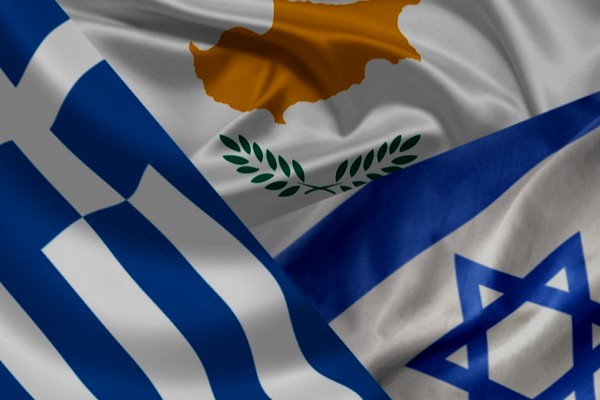The 2,000-megawatt cable appears to have supplanted the joint EastMed gas pipeline.
By Associated Press
The European Union has earmarked 657 million euros ($736 million) for the construction of a 2,000-megawatt undersea electricity cable that will link the power grids of Israel, Cyprus and Greece, Cypriot Energy Minister Natasa Pilides said Thursday.
Pilides told reporters the funding is Cyprus’ largest-ever investment as well as the lion’s share of the total sum that the EU’s Connecting Europe Facility, which bankrolls infrastructure projects, has allocated to a single project this year.
Pilides said the money enables crews to start constructing the segment of the cable that will connect Cyprus with the Greek island of Crete whose total cost is estimated at roughly 1.6 billion euros ($1.8 billion). Negotiations to transfer the funds are expected to wrap up this summer.
The minister said beyond the project’s geopolitical weight, it will ensure Cyprus’ energy security, boost competitiveness in the power supply sector and help the island nation more easily transition to a green economy.
Cypriot President Nicos Anastasiades said in a statement that the cable “tangibly underscores the significance of the three-way cooperation between Cyprus, Greece and Israel.”
“This is a significant landmark regarding the three countries’ strategic choices which upgrades the region’s energy goals,” the statement said.
With the cable’s completion, it’s expected that more investment will flow into renewable sources enhancing the energy mix of Greece, Cyprus and Israel. Pilides said a study shows that the cable in combination with power storage facilities could push Cyprus’ use of renewable energy sources above 50% by 2030.
Pilides and her Greek and Israeli counterparts signed an agreement last October to speed up technical work on the cable dubbed the “Eurasia Interconnector.”
The agreement aimed to expedite permits and approvals for feasibility studies and to help the three countries’ national electricity coordinators cooperate on how best to move forward. The cable’s first phase is expected to be completed by 2025.
The move toward an electricity cable link appears to have supplanted plans for a potential pipeline connection between the three countries to convey gas from existing and potential deposits off Cyprus and Egypt to Europe through Greece.
Support for the so-called East Med pipeline project has waned amid questions over its feasibility as well as its adverse impact on the environment.
Anastasiades said last week that studies on the pipeline’s feasibility were still ongoing, but other alternatives are open to get gas to markets.
Among the more likely options is to convey Cypriot gas to Egyptian processing plants where it would be liquefied for export by ship.
